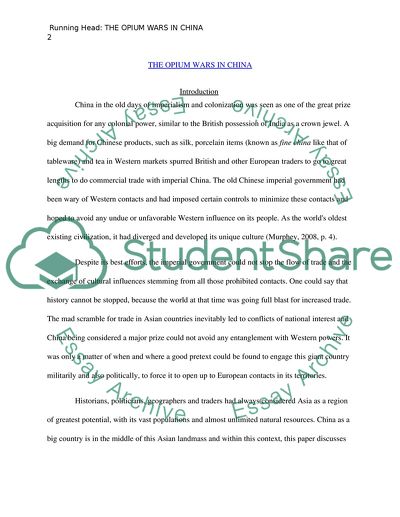Cite this document
(The Origin and Outcome of the Opium War to China Research Paper, n.d.)
The Origin and Outcome of the Opium War to China Research Paper. Retrieved from https://studentshare.org/history/1766178-the-origin-and-outcome-of-the-opium-war-to-china
The Origin and Outcome of the Opium War to China Research Paper. Retrieved from https://studentshare.org/history/1766178-the-origin-and-outcome-of-the-opium-war-to-china
(The Origin and Outcome of the Opium War to China Research Paper)
The Origin and Outcome of the Opium War to China Research Paper. https://studentshare.org/history/1766178-the-origin-and-outcome-of-the-opium-war-to-china.
The Origin and Outcome of the Opium War to China Research Paper. https://studentshare.org/history/1766178-the-origin-and-outcome-of-the-opium-war-to-china.
“The Origin and Outcome of the Opium War to China Research Paper”, n.d. https://studentshare.org/history/1766178-the-origin-and-outcome-of-the-opium-war-to-china.


